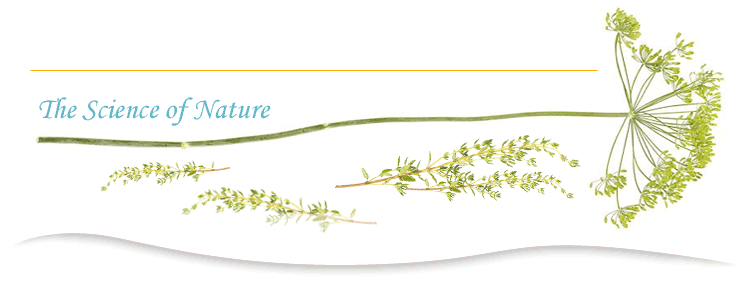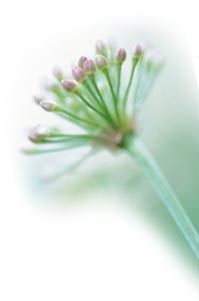

Scientific References - Nutrition and Cancer
Books
By Richard Béliveau, Denis Gingras, Pierre Bruneau
The Book of Green Tea
Diana Rosen,
Storey Publishing, 1998, 160 pages.
Nutritional Oncology
D.Heber, G.L. Blackburn, V. L. W. Go (Editeurs),
Academic Press, 1999, 632 pages.
Scientific References
The effect of diet on risk of cancer.
T. J. Key, N.E. Allen, E.A. Spencer, R.C. Travis.
Lancet, 2002; 360, 861-868.
[Abstract]
Suppression of tumour development by substances derived from the diet: mechanisms and clinical implications
A Gescher, U. Pastorino, S.M. Plummer, M.M. Manson.
British Journal of Clinical Pharmacology, 1998; 45, 1-12
Adolescent and adult soy intake and risk of breast cancer in Asian-Americans
A.H. Wu, P. Wan, J. Hankin, C.-C. Tseng, M.C. Yu, M.C. Pike.
Carcinogenesis, 2002; 23, 1491-1496.
Signal transduction pathways leading to cell cycle arrest and apoptosis induction in cancer cells by Allium vegetable-derived organosulfur compounds: a review
A. Herman-Antosiewicz, S.V. Singh.
Mutation Research, 2004; 555, 121-131.
[Abstract]
Medulloblastoma cell invasion is inhibited by green tea (-) epigallocatechin-3-gallate
A. Pilorget, V. Berthet, J. luis, A Moghrabi, B. Annabi, R.
Journal of Cellular Biochemistry, 2003; 90, 745-755.
[Abstract]
Targeting signal transduction pathways by chemopreventive agents
A.M. Bode, Z. Dong.
Mutation Research, 2004; 555, 33-51.
[Abstract]
Garlic and cancer; a critical review of the epidemiologic literature.
A.T. Fleischauer, L. Arab.
The Journal of Nutrition, 2001; 131, 1032S-1040S
Allium vegetables and risk of prostate cancer: a population-based study.
A.W. Hsing, A.P. Chokkalingam, Y.T. Gao, M.P. Madigan, J. Deng, G. Gridley, J.F. Fraumeni.
Journal of the National Cancer Institute, 2002; 94, 1648-1651.
Radiation induced-tubulogenesis in endothelial cells is antagonized by the antiangiogenic properties of green tea polyphenol (-) epigallocatechin-3-gallate.
B. Annabi, Y.T. Lee, C. Martel, A Pilorget, J.P. Bahary, R. Béliveau.
Cancer Biology and Therapy, 2003; 2, 642-649.
Curcumin derived from turmeric (Curcuma longa) : A spice for all seasons.
B.B. Aggarwal, A Kumar, M.S. Aggarwal, S. Shishodia.
Phytochemicals in cancer chemoprevention, D. Bagchi, H.G. Preuss, Eds., 1-24.
Polyphenols: food sources and bioavailability.
C. Manach, A Scalbert, C. Morand, C. Rémésy, L. Jimenez.
American Journal of Clinical Nutrition, 2004; 79, 727-747.
Soy processing influences growth of estrogen-dependent breast cancer tumors. C.D. Allred, K.F. Allred, Y.H. Ju, T.S. Goeppinger, D.R. Doerge, W.G. Helferich.
Carcinogenesis 2004; 25 : 1649-1657.
Tea and cancer.
C.S. Yang, Z.Y. Wang.
Journal of the National Cancer Institute, 1993; 85, 1038-1049.
[Abstract]
Induction of medulloblastoma cell apoptosis by sulforaphane, a dietary anticarcinogen from Brassica vegetables.
D. Gingras, M. Gendron, D. Boivin, A. Moghrabi, Y. Théoret, R. Béliveau.
Cancer Letters, 2004; 203, 35-43.
[Abstract]
The hallmarks of cancer.
D. Hanahan, R. A. Weinberg.
Cell 2000; 100, 57-70.
[Article]
Omega-3 fatty acids as cancer chemopreventive agents.
D.P. Rose, J.M. Connolly.
Pharmacology and Therapeutics, 1999; 83, 217-244.
[Abstract]
Epidemiological studies on Brassica vegetables and cancer risk.
D.T.H. Verhoeven, R.A Goldbahm, G. van Poppel, H. Verhagen, P.A van den Brandt.
Cancer Epidemiology, Biomarkers & Prevention, 5; 1996, 733-748.
Overweight, obesity and cancer: epidemiological evidence and proposed mechanisms.
E. E. Calle, R. Kaaks.
Nature Reviews on Cancer, 2004; 4, 579-591.
[Abstract]
A review of epidemiologic studies of tomatoes, lycopene, and prostate cancer.
E. Giovannucci.
Exp. Biol. Med. 2002; 227, 852-859.
“Angioprevention”: angiogenesis is a common and key target for cancer chemopreventive agents.
F. Tosetti, N. Ferrari, S. de Flora, A. Albini.
Federation of American Societies for Experimental Biology Journal, 2002; 16, 2-14.
Mechanisms of cancer chemoprevention by soy isoflavone genistein.
F.H. Sarkar, Y. Li.
Cancer and Metastasis Reviews, 2002; 21, 265-280.
[Abstract]
Phyto-oestrogens and cancer.
H. Adlercreutz.
The Lancet Oncology, Volume 3, Issue 6, Pages 364-373
[Abstract]
Multifunctional aspects of the action of Indole-3-carbinol as an antitumor agent.
H.L. Bradlow, D.W. Sepkovic, N.T. Telang, M.P. Osbome.
Annals of the New York Academy of Sciences, 1999; 889 : 204-213.
[Abstract]
Biological properties of citrus flavonoids pertaining to cancer and inflammation.
J.A Manthey, N. Guthrie, K. Grohmann.
Current Medicinal Chemistry, 2001; 8, 135-153.
[Abstract]
Tomato phytochemicals and prostate cancer risk.
J.K. Campbell, K. Canene-Adams, B.L. Lindshield, T.W.-M. Boileau, S.K. Clinton, J.W. Erdman.
The Journal of Nutrition, 2004; 134, 3486S-3492S.
Analysis and biological activities of anthocyanins.
J.M. Kong, L.S. Chia, N.-K. Goh, T.-F. Chia, R. Brouillard.
Phytochemistry, 2003; 64, 923-933.
[Abstract]
Sulforaphane inhibits extracellular, intracellular and antibiotic-resistant strains of Helicobacter pylori and prevents benzo[a]pyrene-induces stomach tumors.
J.W. Fahey, X. Haristoy, P.M. Dolan, T.W. Kensler, I. Scholtus, K.K. Stephenson, P. Talalay, A. Lozniewski.
Proceedings of the National Academy of Sciences, 2002; 99, 7610-7615.
Broccoli sprouts: an exceptionally rich source of inducers of enzymes that protect against chemical carcinogens.
JW. Fahey, Y. Zhang, P. Talalay.
Proceedings of the National Academy of Sciences, 1997; 94, 10367-10372.
Lycopene: modes of action to promote prostate health.
K. Wertz, U. Siler, R. Goralczyk.
Archives of Biochemistry and Biophysics, 2004; 430,127-134.
[Abstract]
Combined inhibition of PDGF and VEGF receptors by ellagic acid, a dietary-derived phenolic compound.
L. Labrecque, S. Lamy, A. Chapus, S. Mihoubi, Y. Durocher, B. Cass, M.W. Bojanowski, D. Gingras, R. Béliveau.
Carcinogenesis, 2005; 26,821-826.
Chemoprevention of esophageal tumorigenesis by dietary administration of lyophilized black raspberries.
L.A Kresty, M.A. Morse, C. Morgan, P.S. Carlton, J. Lu, A. Gupta, M. Blackwood, G.D. Stoner.
Cancer Research, 2001; 61, 6112-6119.
Estrogen and the risk of breast cancer.
M. Clemons, P. Goss.
The New England Journal of Medicine, 2001; 344, 276-285.
[Abstract]
Green tea catechins as novel antitumor and antiangiogenic compounds.
M. Demeule, J. Michaud-Lévesque, B. Annabi, D. Gingras, D. Boivin, J. Jodoin, S. Lamy, Y. Bertrand, R. Beliveau.
Current Medicinal Chemistry - Anti-Cancer Agents, 2002; 2, 441-63.
[Abstract]
Matrix metalloproteinase inhibition by green tea catechins.
M. Demeule, M. Brossard, M. Pagé, D. Gingras, R. Béliveau.
Biochimica et Biophysica Acta, 2000; 1478, 51-60.
[Abstract]
Diallyl disulfide, a chemopreventive agent in garlic, induces multidrug resistance-associated protein 2 expression.
M. Demeule, M. Brossard, S. Turcotte, A. Regina, J. Jodoin, R. Béliveau.
Biochemical and Biophysical Research Communications, 2004; 324, 937-45.
[Abstract]
Type of alcohol consumed and mortality from all causes, coronary heart disease, and cancer.
M. Gronbaek, U. Becker, D. Johansen, A Gottschau, P. Schnohr, H.O. Hein, G. Jensen, T.I. Sorensen .
Annals of Internal Medicine, 2000; 133,411-419.
Cancer chemopreventive activity of resveratrol, a natural product derived from grapes.
M. Jang, L. Cai, G.O. Udeani, K.V. Slowing, C.F. Thomas et al.
Science, 1997; 275, 218-220.
[Abstract]
Soy for breast cancer survivors: a critical review of the literature.
M.J. Messina, C.L. Loprinzi.
The Journal of Nutrition, 2001; 131, 3095S-3108S.
Soy and isoflavone consumption in relation to prostate cancer risk in China.
M.M. Lee, S.L. Gomez, J.S. Chang, M. Wey R.-T. Wong, AW. Hsing.
Cancer Epidemiology, Biomarkers & Prevention, 2003; 12, 665-668.
Phytochemicals from cruciferous plants protect against cancer by modulating carcinogen metabolism.
P. Talalay, J.W. Fahey.
Journal of Nutrition, 2001; 131, 3027S-3033S.
Phyto-oestrogens, their mechanism of action: current evidence for a role in breast and prostate cancer.
P.J. Magee, I.R. Rowland.
British Journal of Nutrition, 2004; 91, 513-531.
Prevention and therapy of cancer by dietary monoterpenes.
P.L. Crowell.
Journal of Nutrition, 1999; 129, 775S-778S.
Inhibition of N-nitrosomethylbenzylamine-induced tumorigenesis in the rat esophagus by dietary freeze-dried strawberries.
P.S. Carlton, L.A. Kresty, J.C. Siglin, M.A. Morse, J. Lu, C. Morgan, G.D. Stoner.
Carcinogenesis, 2001 ; 22, 441-446.
Green tea: prevention and treatment of cancer by nutraceuticals.
R. Béliveau, D. Gingras.
Lancet 2004; 364, 1021-1022.
[Link]
The causes of cancer: Quantitative estimates of avoidable risks of cancer in the United States today.
R. Doll, R. Peto.
Journal of the National Cancer Institute, 1981; 66, 1196-1265.
[Abstract]
The anti-angiogenic basis of metronomic chemotherapy.
R.S. Kerbel, B.A Kamen.
Nature Reviews on Cancer, 2004; 4, 423-436.
[Abstract]
Green tea catechins inhibit vascular endothelial growth factor receptor phosphorylation.
S. lamy, D. Gingras, R. Béliveau.
Cancer Research, 2002; 62, 381-385.
Soy, isoflavones, and breast cancer risk in Japan.
S. Yamamoto, T. Sobue, M. Kobayashi, S. Sasaki, S. Tsugane.
J. Natl. Cancer Inst. 2003; 95, 906-913.
Dietary long-chain n-3 fatty acids for the prevention of cancer: a review of potential mechanisms.
S.C. Larsson, M. Kumlin, M. Ingelman-Sundberg, A. Wolk.
American Journal of Clinical Nutrition, 2004; 79 : 935-945.
Isothiocyanates, glutathione S-transferase M1 and T1 polymorphisms, and lung-cancer risk: a prospective study of men in Shangai, China.
S.J. London, J.-M. Yuan, F.-L. Chung, Y.-T. Goo, G.A. Coetzee, R.K. Ross, M.C. Yu.
Lancet, 2000; 356, 724-729.
[Abstract]
A potential decline in life expectancy in the United States in the 21st century
S.J. Olshansky, Douglas J. Passaro, Ronald C. Hershaw et al.,
The New England Journal of Medicine, 2005; 352, 1138-1144.
[Abstract]
Potential impact of strawberries on human health: a review of the science.
S.M. Hannum.
Critical Reviews in Food Science and Nutrition, 2004; 44, 1-17.
[Abstract]
Genistein, a specific inhibitor of tyrosine-specific protein kinases.
T. Akiyama, J. Ishida, S. Nakagawa, H. Ogawara, S.-I. Watanabe, N. Itoh, M. Shibuya, Y. Fukami.
The Journal of Biological Chemistry,1987; 262, 5592-5595.
Role of chemopreventive agents in cancer therapy.
T. Dorai, B.B. Aggarwal.
Cancer Letters, 2004; 215,129-140.
[Abstract]
Pentameric procyanidins isolated from Theobroma cacao seeds selectively downregulate ErbB2 in human aortic endothelial cells.
T.P. Kenny, C.L. Keen, P. Jones, H.-J. Kung, H.H. Schmitz, M.E. Gershwin.
Experimental Biology and Medicine, 2004; 229, 255-263.
The effect of vitamin E and beta-carotene on the incidence of lung cancer and other cancers in male smokers.
Kenny TP, Keen CL, Jones P, Kung HJ, Schmitz HH, Gershwin ME.
The New England Journal of Medicine, 1994; 330, 1029-1035.
A review of the health effects of green tea catechins in in-vivo animal models.
V. Crespy, G. Williamson.
Journal of Nutrition, 2004; 134, 3431S-3440S.
Angiogenesis inhibited by drinking tea.
Y. Cao. R. Cao.
Nature, 1999; 398; 381.
[Abstract]
A major inducer of anticarcinogenic protective enzymes from broccoli: isolation and elucidation of structure.
Y. Zhang, P. Talalay, C.G. Cho, G.H. Posner.
Proceedings of the National Academy of Sciences, 1992; 89, 2399-2403.
Cancer chemoprevention with dietary phytochemicals.
Y.-J. Surh.
Nature Reviews on Cancer, 2003; 3, 768-780.
[Abstract]
Chemoprevention by isothiocyanates and their underlying molecular signaling mechanisms.
Y.-S. Keum, W.-S. Jeong, AN. T. Kong.
Mutation Research, 2004; 555, 191-202.
[Abstract]
Review
This stunning bestseller is a must-read for anyone wishing to improve their health.
In North America, 10 million people are currently living with cancer and about one third of cancer cases are directly linked to eating habits. Recent researches convincingly show the positive effect of particular foods and their anticancerous molecules in reducing the risk of developing cancer and even slowing its progression in people already affected. This book, based on extensive research is truly fascinating and remains easy to read. It will teach you, in a very accessible way, what you should be eating and in what proportion. Most importantly it will show you how incorporating essential and critical foods to your diet can be enjoyable, fun and much easier than you may think. This book can literally change your life.
About the authors: Richard Béliveau is professor at the Faculty of Medicine of the University of Montreal and is a leading figure in cancer prevention and treatment. Denis Gingras is a researcher in oncology at the Sainte-Justine Hospital for children in Montreal.